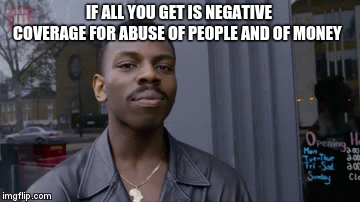

ALMOST everything we see and read about the USPTO is good news. 35 U.S.C. ۤ 101 prevailed another year (no matter what they told us about Coons for the third year in a row) and case outcomes that we mention/add to Daily Links almost always reveal the invalidation of software patents in the US courts (the same happens to software patents in Europe, but only if one can afford the legal challenge).
One should not forget that if an opposition division decides not to admit an opposition, it does not have to discuss any substantive matter like added matter, insufficiency, novelty or inventive step.
In the present case the OD jumped at the gun, and it has to be agreed that the actual discussion on the value of the proof given is a matter of substance or whether the opposition is well founded and not merely of admissibility.
That the drawings bore a stamp confidential is not surprising, but what matters is that the corresponding element was made available to the public. One can expect that after two years of service the whole system was made available to the public, and that confidentiality was not any longer present, even if it had been implicit, which remains a mere allegation of the proprietor and of the division.
It is thus correct to say that should Bombardier wanted to claim confidentiality, then it bears the burden of proof. Bombardier did not deny the public prior use, as this would not have been plausible.
The decision is however to be welcomed as it clarifies important issues with respect to the onus of proof.
I do not consider that Art 12(4) NRPBA would change anything in the present situation. Siemens could not bring anything more than it had brought up to then, so that even present Art 12(4) RPBA would not apply.
T 0426/08 is another decision in which the OD confused admissibility and being well-founded.
"It's no secret that the EPO bribes publishers to spread these sorts of buzzwords and thus promote illegal patents."Benjamin Henrion (FFII) has meanwhile asked: "Does the Canadian Patent Office grants software patents? Supporting "Open Source" and granting "Software Patents" at the same time is not really coherent."
Even proprietary software suffers from software patents. It's not a Free/libre software issue but a software development issue; software patents threaten everyone who develop software (coding). The development paradigm and licensing terms don't matter.
As for Canada, I told Henrion that it is "still the source of some of the world's biggest patent trolls who leverage patents..." (of low quality and usually no actual validity). We regret to see that the EPO has become one of the world's worst in that regard (except maybe China).
"In co-operation with the Handelsblatt Research Institute," the EPO wrote yesterday, "we conducted a study on patents and the #4IR, covering a whole range of technical fields."
"4IR" is a buzzword for illegal software patents. It's no secret that the EPO bribes publishers to spread these sorts of buzzwords and thus promote illegal patents. In this new tweet the EPO reminds us that it bribed a large German publisher that used to cover EPO corruption and after the bribery it covered up, instead. And yes, the Handelsblatt "Research Institute" is definitely connected to the publisher (same logo, too). They just sell propaganda and bias; perhaps that is their business model. It doesn't seem like everyone is aware.
A few days ago the EPO also promoted one of its several fictional stories about the lives of EPO examiners. It cited something very old -- dating back to the time the EPO literally paid for such propaganda pieces. ⬆